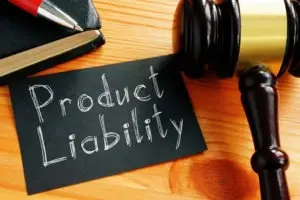
These laws can be used to sue a manufacturer, distributor, or retailer who sells you a faulty product. If you are injured by a defective product, you may be able to seek damages under these laws. The law will hold them responsible for any injuries or damages caused by their negligence.
Types of Defects
There are two basic types of defects: manufacturing defects and design defects. Manufacturing defects can occur during any stage of production and result from mistakes made by workers at any point in the process, from conception through distribution.
Design defects are inherent in the way the product was designed and cannot be corrected through simple repairs or alterations to existing designs.
Manufacturing Defects
A defect in the manufacturing process can cause a product to be dangerous or defective when it reaches the consumer. This could include using an ingredient that is harmful, such as lead paint on toys, or putting together parts incorrectly, which can result in things like exploding gas tanks or tires.
Design Defects
Some products are inherently dangerous because of their design. For example, if an automobile has no seatbelts or airbags installed, and these items are required by law, a design defect exists that makes the vehicle unsafe for use on public roads.


Expect More, Receive More: Legal Support That Feels Like Family
Products and Services Covered by Product Liability Laws
The laws apply to any kind of product—food, toys, medications, clothing, cars, and more. Even services are covered under some circumstances. For example, if you buy a service and are injured because of its poor quality or improper installation, you may be able to bring a product liability claim against the provider if their lack of skill led to your injury.
Products covered by product liability laws include:
- Food products (e.g., salmonella in peanut butter)
- Medical devices/products (e.g., faulty surgical equipment)
- Toys (e.g., lead paint on toys)
- Appliances (e.g., exploding dryers)
- Clothing (e.g., faulty zippers)
The law also covers services that are provided for compensation, such as medical care, dental care, or legal services. In addition, some states require manufacturers of certain types of products to register with the state before selling their products within its borders.
How do Product Liability Laws Work?
Product liability laws are designed to protect consumers from the dangers posed by defective or dangerous products. The law imposes strict liability on manufacturers, distributors, and sellers of products that cause injury or death to a consumer because they are defective.
This means that you do not need to prove that anyone is at fault for your injuries—you simply must show that your injury was caused by a product that failed to perform as expected. In addition, there are strict time limits for filing claims under product liability laws, so it is important to seek legal advice as soon as possible after an injury occurs.
In the United States, product liability laws are in place to protect consumers from harm caused by defective products. Product liability laws vary by state. Under Florida Statute § 768.81, a claim can be filed against the at-fault party based on strict liability, negligence, breach of warranty, nuisance, or similar theories. In most states, these are the two common categories:
Strict Product Liability
In strict liability cases, a defect in the design or manufacturing of a product can lead to a lawsuit against the manufacturer or seller of that product. This type of lawsuit is often filed under breach of warranty claims as well. This is why having a product liability lawyer to help prepare the lawsuit is so important.
Comparative Negligence
In comparative negligence cases, a plaintiff can only recover damages from a defendant if he or she is not more than 50% at fault for their injuries. In these cases, it’s up to each party involved in the case to prove that they weren’t more than 50% at fault for the accident or incident leading up to the lawsuit.
Understand Your Rights as a Consumer
Under federal law, every state must have some form of consumer protection law that gives consumers the right to sue manufacturers for injuries caused by defective products. These laws may be found in the federal government’s Consumer Product Safety Act (CPSA).
In most states, this right applies only within certain time limits after an injury occurs. If those time limits pass before you know about the defect in your product or realize that it was responsible for causing your injury, you may lose your right to seek compensation from the manufacturer or seller of the product.
How do You Prove a Product Is Defective?
To prove that a product is defective under product liability law, you must show that:
- The product was unreasonably dangerous when it left the manufacturer’s control
- It caused your injury because of its ineffectiveness
If you can prove these elements, you can recover damages from the manufacturer based on your injuries and losses resulting from the defectiveness of the product. Under strict liability laws, it does not matter if you were careless with the product or if it had adequate warnings about its use.
If a product causes injury to someone, the manufacturer can be held liable for damages. The purpose of this legal doctrine is to avoid lawsuits based on negligence and to force businesses to take responsibility for their products and be more careful in how they manufacture them.
Why You Need an Attorney
Product liability claims are complex and require extensive knowledge of the law, as well as specific facts about your individual case. If you want to pursue compensation for your injuries, you should contact an experienced personal injury attorney at Viles & Beckman who specializes in this area of law and can help you navigate the legal system.
A lawyer will be able to help you determine whether you have a case, gather evidence, and build a strong case that shows the manufacturer’s negligence. In some cases, it might even be possible to bring additional claims against other parties involved in the chain of distribution or sale of your product. Contact us today to schedule a consultation.



